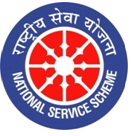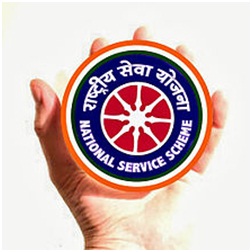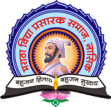
What is NSS?
National Service Scheme (NSS) is a broad movement for building social commitment motivated by the motto ‘Social service is the real service to God’. Through this scheme, youth power can be utilized for building a self-reliant country. Volunteers voluntarily participate in this national work to find the basic and local level problems of the society and activate the youth to solve them. National Service Scheme is a noble experiment in academic expansion. It encapsulates the spirit of voluntary work among the students and the teachers to sustain community interaction. It brings academic institutions closer to the society. It shows how to combine knowledge and action to achieve the desirable results leading to community development
History:
National Service Scheme (NSS) was launched during 1969, the birth centenary year of Mahatma Gandhiji, in 37 universities involving 40000 students. NSS is an extension dimension to the higher education system to orient the student youth to community service while they are studying in educational institutions. It is being implemented by the Ministry of Youth Affairs and Sports, Government of India.
National Service Scheme
National Service Scheme (NSS) has been playing a very important role in enriching the souls and minds of the students of the college since extensive time. The overall objective of this scheme is Education and Service to society and by the community. It is a scheme for students to provide to the needs of the community, as and when necessary. It will also help the students to converse with society. The students joining this scheme build up many behavioral interactive skills. They visit the rural areas as NSS volunteers during the camps organized by the college. The NSS volunteers take initiative in developing a Technocratic Environment and also help the deprived people to develop themselves. The scheme promotes the aptitude to present them in an improved way. Thus the eventual goal of the scheme is to endeavor to inculcate the bond of patriotism, national integration, brotherhood, gender equality, communal harmony among these volunteers.
Dr. D. D. Gavhane (Principal)
The College students actively participate in social service activities leading to their overall development. The college runs effectively the National Service Scheme (NSS). Through these schemes, the institution undertakes various extension activities in the neighboring communities. At present, the strength of the NSS unit is of 100 volunteers. Every year the college selects a neighboring village in the vicinity, organizes a camp for seven days and takes up cleanliness, village survey, and other constructive works. During the last five years, the NSS volunteer has organized camps in ShirwadeVani, DhondgavhanWadi, Goharan, Bahaduri and Dahyane. Several of the noteworthy activities were carried out by NSS volunteers, which include tree plantation, water conservation through digging of contour trenches, digging of pits for construction of toilets in the village, making paths and roads, Watershed management activities etc. The impact is, the villages have got new green coverage, increased groundwater level, cleaner roads and surroundings and importantly villagers learned the significance of rainwater harvesting, the camps and awareness programs have improved their understanding about various social issues.
Prof. Niraj Bhabad (NSS Programme Officer)
▪Coverage
Started initially in 37 universities involving 40000 volunteers, the scheme has grown over the years and it is implemented today with an involvement of more than 2.6 million volunteers spread over in 200 universities, polytechnics and +2 systems. The efforts of NSS volunteers have been widely acclaimed by the community universities, colleges and general public of the NSS volunteers have been rendering selfless services to the community. This Scheme is running in our college since A.Y. 2008-09.
▪Motto
The motto of NSS “Not Me but You“ reflects the essence of democratic living and upholds the need for selfless service. NSS helps the student develop appreciation to other person’s point of view and also show consideration to other living beings. The philosophy of the NSS is well doctrine in the motto which underlines on the belief that the welfare of an individual is ultimately dependent on the welfare of the society on the whole and their fore, the NSS volunteers shall strive for the well-being of the society.
▪Symbol

The symbol of the NSS is based on the ‘Rath wheel’ of the Konark Sun-Temple situated in Orissa. These giant wheels of the Sun Temple portray the cycle of creation, preservation and release, and signify the movement in life across time and space. It stands for community as well as change and implies the continuous striving of National Service Scheme for social transformation &upliftment.
▪Badge
The NSS symbol is embossed on the NSS badge. The NSS volunteers wear it while undertaking various programmes of community service. The Konark wheel in the symbol has eight bars i.e. 8 Prahars (period) which represent 24 hours of the day. Hence the badge reminds the wearer to be in readiness for service of the nation round the clock i.e. 24 hours. The red color in the badge indicates that the NSS volunteers are full of blood. i.e. lively, active and spirited. The navy blue color indicates the cosmos of which the NSS is a tiny part ready to contribute its share for the welfare of the mankind.
▪Objective
- To Understand the Community In Which they Work
- To Understand themselves In Relation to their Community
- To Identify the needs and problems of the community and involve them In problem solving
- To develop among themselves a sense of social and civic responsibility
- To utilize their knowledge In finding practical solutions to Individual and community problems.
- To develop competence required for Group – Living and sharing of Responsibilities
- To gain skills in mobilizing community participation.
- To acquire leadership, qualities and democratic attitudes.
- To develop capacity to meet emergencies and natural disasters.
- To practice national integration and social harmony.


